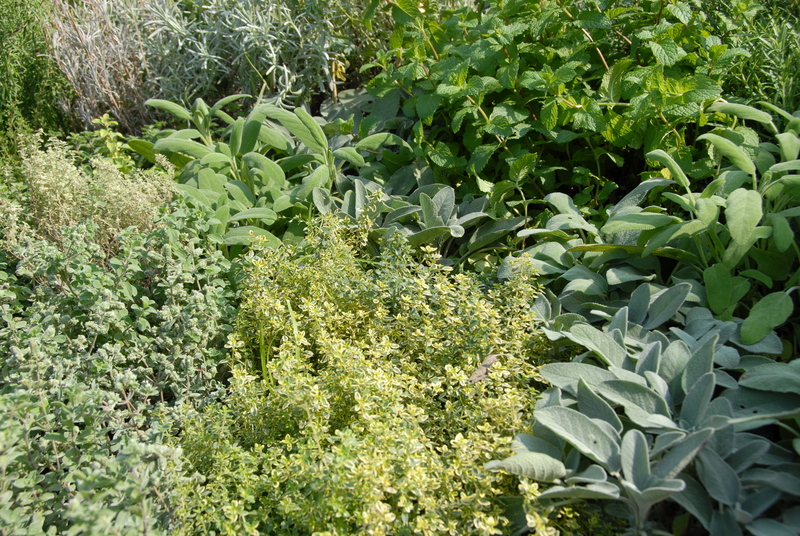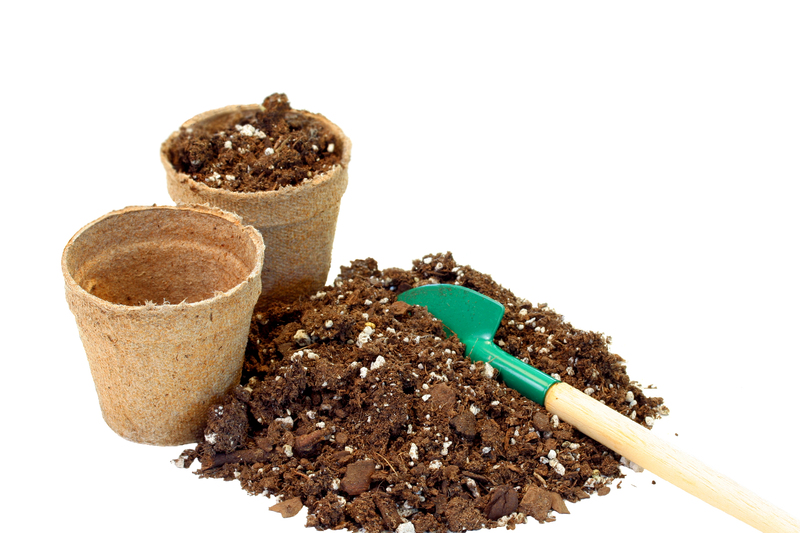Revolutionize your garden to support a healthier planet
Posted on 23/09/2025
Revolutionize Your Garden to Support a Healthier Planet: The Ultimate Guide
Are you ready to make a real impact on the environment, right from your backyard? Revolutionizing your garden to support a healthier planet isn't just trendy--it's necessary! Modern gardens go far beyond aesthetics; they're dynamic ecosystems that can positively influence local biodiversity, soil health, water use, and even climate change. In this comprehensive guide, explore how transforming your garden can become a powerhouse for planetary wellness, with actionable steps for gardeners of every skill level.

Why Garden for the Planet?
Our global ecosystem faces unprecedented challenges: climate change, habitat loss, and declining pollinator populations, to name a few. The traditional approach to gardening--neatly manicured lawns, chemical fertilizers, and non-native species--often exacerbates these issues. But you have incredible power at your fingertips. Every backyard, balcony, or community plot has the potential to become a beacon of sustainability.
- Increase biodiversity by planting native species.
- Improve soil health through organic practices.
- Reduce carbon footprint with eco-friendly maintenance.
- Support pollinators and beneficial insects naturally.
- Conserve water through smart landscaping.
By revolutionizing your garden for sustainability, you're not just growing plants--you're cultivating hope for the planet's future.
Principles of Eco-Friendly Gardening
1. Plant Native & Climate-Appropriate Species
Native plants evolved alongside your local wildlife and climate conditions. They're uniquely suited to thrive with minimal intervention while providing crucial food and shelter for birds, bees, butterflies, and more. When you prioritize native and drought-resistant plants, you:
- Reduce water consumption--native species are naturally adapted to seasonal rainfall.
- Eliminate the need for chemical fertilizers and pesticides.
- Restore natural habitats for threatened pollinators.
*Tip: Visit your local nursery or botanical garden for lists of natives suitable to your region and get inspired!*
2. Regenerate Your Soil Naturally
Healthy soil is the foundation of any climate-friendly garden. Industrial agriculture and landscaping strip soil of its organic matter, diminishing its ability to store carbon and filter water. To restore and enhance soil health:
- Start composting--turn kitchen scraps and yard waste into nutrient-rich soil amendment.
- Practice no-dig gardening--minimize tilling to protect delicate soil microbe communities.
- Apply organic mulches--suppress weeds, retain moisture, and feed soil organisms as they break down.
- Rotate crops and plant cover crops to replenish soil nutrients naturally.
These practices ensure your garden acts as a living carbon sink--absorbing CO2 and supporting a balanced micro-ecosystem.
3. Welcome Wildlife & Beneficial Insects
A sustainable garden is a hub for wildlife diversity. Encouraging pollinators and predators keeps pests in check and supports global food security. Here's how to create an inviting habitat:
- Plant pollinator-friendly flowers--think milkweed, lavender, echinacea, and sunflowers.
- Add water sources (like shallow dishes or birdbaths) for drinking and bathing.
- Build bug hotels using bamboo, old logs, and hollow stems.
- Leave untidy corners for bees, butterflies, ladybugs, and birds to shelter and nest.
Biodiverse gardens are more resilient and require fewer chemical interventions--good for you, your community, and the planet.
4. Smart, Sustainable Water Management
With water scarcity worsening worldwide, efficient use is more vital than ever. Transform your garden for water conservation by:
- Harvesting rainwater--install barrels to collect runoff from roofs.
- Using drip irrigation instead of sprinklers to target roots directly.
- Grouping plants by water needs to avoid over- or under-watering.
- Adding mulch to drastically reduce evaporation.
- Replacing lawn with groundcovers or wildflowers--they need less water and effort!
By making every drop count, your planet-friendly garden will thrive--even in drought.
5. Go Chemical-Free: Natural Solutions for Pests and Weeds
Chemical pesticides and fertilizers harm beneficial insects, wildlife, and water sources. Revolutionize your garden for a greener planet with these holistic alternatives:
- Encourage natural predators (ladybugs, lacewings, birds) by providing habitat and food.
- Hand-pick pests or use barriers like row covers for vulnerable crops.
- Apply homemade remedies like neem oil or garlic spray for problem spots.
- Plant companion crops (e.g., marigolds with tomatoes) to suppress pests and boost harvests.
Chemical-free gardens are safer for your family and the world around you.
Embracing Sustainable Gardening Techniques
Create a Permaculture Paradise
Permaculture is an approach to land management that mimics natural ecosystems for lasting ecological harmony. Create a self-sustaining garden by:
- Stacking plants vertically and diversifying crops to maximize usable space and yield.
- Using greywater systems to recycle household water for irrigation.
- Incorporating food forests: multi-layered tree, shrub, vine, and ground cover systems that yield food and wildlife habitat.
- Embracing diversity--the more plant and animal species, the more resilient your ecosystem.
Permaculture gardens require less input, reduce waste, and increase abundance year after year.
Edible Gardens: Grow Your Own Food Sustainably
One of the most powerful ways to revolutionize your garden for the environment is by growing food at home. Home-grown produce:
- Cuts down on carbon emissions from transportation and packaging.
- Reduces food waste by harvesting only what you need.
- Allows you to control inputs, ensuring chemical-free, healthy harvests.
- Connects you deeply to seasonal rhythms and biodiversity.
Start with a few easy crops--lettuce, tomatoes, beans, herbs--or explore vertical and container gardening for small spaces.
Reducing Your Garden's Carbon Footprint
Did you know garden maintenance can contribute to climate change? Here are ways to minimize your impact:
- Switch from gas-powered mowers and blowers to manual or electric alternatives.
- Source compost and mulch locally to reduce transport-related emissions.
- Reuse and upcycle materials (old pots, pallets, and tools) to shrink your garden's environmental footprint.
- Limit use of plastics and choose biodegradable pots and plant labels when possible.
Every small change adds up. Committing to eco-friendly maintenance of your revolutionary garden benefits the planet and your health.
Design Ideas for a Planet-Supportive Garden
Rewilding: Let Nature Lead
The concept of rewilding your garden means dialing back on control and letting your outdoor space return to a more natural state. This creates a haven for wildlife and improves resilience to climate extremes. Simple steps include:
- Reducing mowed lawn areas and allowing wildflowers to grow.
- Leaving seedheads and logs for birds and insects to enjoy.
- Avoiding synthetic lawn treatments and chemicals completely.
With rewilding, you'll witness birds, butterflies, and even small mammals returning--all thanks to your planet-benefitting efforts.
Rain Gardens & Pollinator Patches
Targeted plantings can boost your eco-friendly garden's impact. For example, rain gardens filter pollution and slow runoff, while pollinator patches attract bees and butterflies with dense blooms. Consider:
- Planting at the base of downspouts to capture and clean rainwater.
- Using a mix of native grasses, sedges, and wildflowers for both rain gardens and pollinator beds.
- Ensuring continuous blooms from early spring to late fall to support insects year-round.

Advocating Sustainability Beyond Your Own Backyard
Truly revolutionizing your garden for a healthier planet means becoming a sustainability ambassador. Here's how you can inspire change:
- Share seeds, cuttings, and gardening tips with neighbors and friends.
- Host pollinator walks or native plant workshops in your community.
- Support local growers and nurseries focused on sustainability.
- Advocate for green spaces and wildlife corridors in your city or town plans.
Eco-friendly gardens are contagious. Your personal efforts may inspire a ripple effect, creating green, resilient communities that actively work toward a healthier planet.
Conclusion: Your Garden, Your Planet, Your Legacy
Revolutionizing your garden to support the planet is a bold, hopeful act. Whether you start with a few native plants or overhaul your entire plot, every choice makes a difference. Gardens are no longer just private sanctuaries; they're stepping-stones toward a sustainable future. Ready to make your outdoor space a force for positive change? Take the first step today and watch your garden grow--along with a healthier, more resilient planet.
Further Reading
- Native Plants Database - National Audubon Society
- Pollinator Conservation Resources - Xerces Society
- Gardening for Climate Change - RHS
- Rain Gardens - US EPA
Transforming your garden for a healthier planet is a journey--and with each plant, each patch of wildflowers, and each handful of compost, you're helping to write a brighter future for all.
Latest Posts
Canine Companions in the Garden: Making it Work
Revolutionize your garden to support a healthier planet
Garden Smart: Low Maintenance Strategies on a Budget

